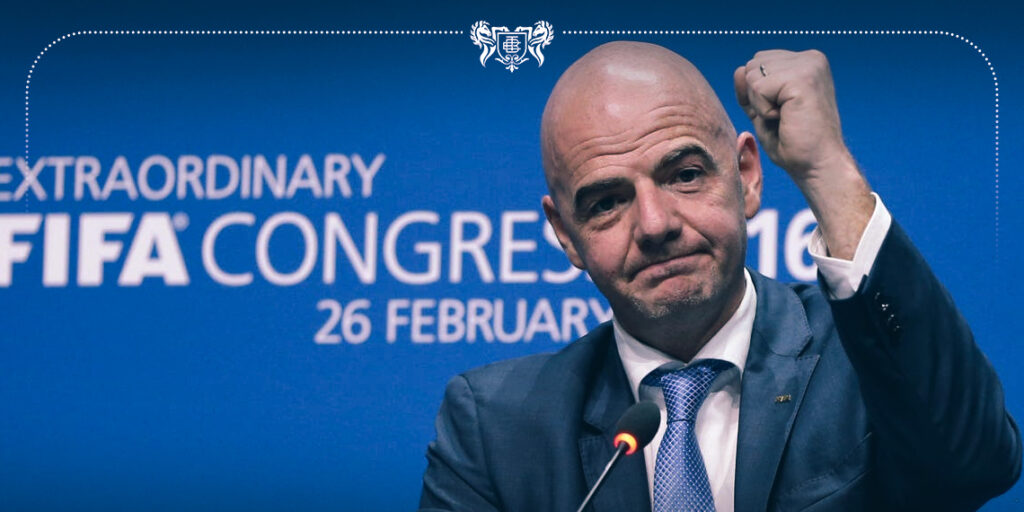A new report by activist organisation FairSquare condemns FIFA’s governance structure, attributing “wide-ranging social harms” and serious human rights abuses to the world football regulator’s current model.
The 140-page report, titled Substitute: The Case for the External Reform of FIFA, critiques the body’s governance under President Gianni Infantino and calls for urgent, external reforms to address systemic failings in its leadership.
Drawing on over 100 interviews and comprehensive field research, FairSquare’s report examines the negative social impact associated with FIFA since the 2010 World Cup in South Africa.
It concludes that FIFA’s governance has deteriorated since Infantino took office in 2016, following high-profile corruption scandals.
The report’s findings attribute the organisation’s shortcomings to an executive president model, where the one-member-one-vote system centralises power and encourages patronage, resulting in a lack of internal regulation.
This flawed structure, according to FairSquare, has undermined FIFA’s mission, especially in promoting women’s football, and has fuelled conflicts of interest by combining regulatory responsibilities with competition management.
The report’s release comes as FIFA faces a challenging period, with its authority questioned by several legal actions, including lawsuits from players’ unions opposing the contentious new Club World Cup.
Infantino’s administration has also drawn significant criticism for its increasing association with Saudi Arabia, which is anticipated to host the 2034 World Cup following an en bloc voting process set for December 11.
This mechanism, which requires member nations to cast ballots simultaneously for the 2030 and 2034 World Cups, could potentially limit dissenting votes.
A key focus of FairSquare’s report is the FIFA Forward programme, the modern successor to Sepp Blatter’s GOAL initiative, which redistributes substantial funds to member associations annually.
FairSquare argues that the programme functions as a “mutually dependent system of patronage,” prioritising incumbent presidents’ votes over meaningful, transparent development of the game.
The report asserts that “FIFA does not appear to exercise adequate control over the funds it redistributes. Instead, it funnels increasing sums to member associations without clear alignment to their specific development needs.”
FairSquare concludes that “one of the primary purposes of the [programme] appears to be securing the political support of member associations at the expense of football’s sustainable development.”
FairSquare, which campaigns for governance reforms to reduce social harm from sports institutions, argues that without external intervention, FIFA’s structural flaws will continue to perpetuate abuses and undermine the organisation’s credibility on the global stage.


